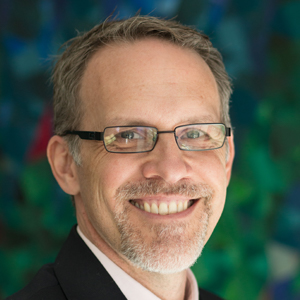Opening my mind
I’ve always considered myself an open-minded person. I now realize that I wasn’t always as open-minded as I’d thought.
I come from a very small, rural town in Pennsylvania and had a sheltered upbringing. This is not because my parents intentionally shielded me from other ways of thinking or living but simply because of the environment in which we lived. Southeast Pennsylvania is heavily populated with Pennsylvania Germans (or Pennsylvania Dutch as they are known). German names like my own and Kramer, Lichtfuss, Fenstermacher and Schultz are common. A majority of the students in my graduating high school class were Lutheran, Mennonite, Presbyterian or United Church of Christ. Because of the makeup of this population, I couldn’t help but have what many might consider to be a limited worldview.During my college years, I met and became friends with people of very different backgrounds, ethnicities, religions and philosophical bents. But even then, many of these people were still from the Middle Atlantic region, so their general mentality was similar.
It was during my graduate school years that my mind really expanded when I met and befriended people from all over the country and the world: Afghanistan, India, Korea, Pakistan, Burma, Sri Lanka. During my postdoctoral years, when I met people from Europe or the Caribbean, my mind opened ever further to different cultures and ways of thinking, and I adopted the view that even though we may come from different parts of the world and have disparate beliefs, we are, in essence, all the same.
In my graduate and postdoc years I began to acknowledge and explore my sexuality and to think about how it related to what I knew and believed. Throughout my life as a gay man, I’ve had to endure many different and sometimes hurtful opinions about who and what I am. Not once have these words been said directly to or about me. Instead I heard them expressed by people who didn’t realize I was gay or through word of mouth, the media or society in general. Part of my journey has been deciding whether to tune these opinions out or to think hard about myself, thicken my skin and stand up for what I believe.
I feel very fortunate that the institutes where I’ve worked have been supportive of me as a gay man. I remember interviewing for my present faculty position and being asked why I wanted to move to New Orleans. When I said, “Well, my partner, Joe, lives here and I want to be with him,” the response was not shock or disgust. It was indifference — indifference because for the people with whom I interviewed and now work, my situation was the same as it would have been if Joe were a she and my wife.
Further illustrating the commitment of my institute to lesbian, gay, bisexual and transgender issues, I was recommended by an associate dean of our school to apply to be on the Association of American Medical Colleges Advisory Committee on Sexual Orientation, Gender Identity and Sex Development. At the first meeting of this committee, I felt like an impostor. I was surrounded by eight people who were leaders in the field of LGBT health issues. But I opened my mind and soaked up everything I could, and very quickly, the members made me feel welcome and an important part of the work we were doing.
Even though I knew the LGBT community was diverse, the full complexity of this diversity was unimaginable when I began with the committee. Yes, there are the “simple” situations like mine – I am a man who identifies as male and whose sole sexual attraction is to men. However, there are also individuals who are assigned as male or female at birth but who identify as the opposite gender and wish to modify their appearance, either by dress or through physical changes, so that how they present themselves to society matches the gender with which they identify.
Adding further complexity is the fact that a person’s sexual orientation – the gender to which they are physically attracted – is independent of the gender with which they identify. For example, a transgender male (a person who is born female but identifies and presents as male) may be sexually attracted to men. Include the many people who are in the process of coming to terms with who they are, and you can see how vibrant, diverse, complex and fluid the LGBT population is.
Independent of but often associated with these populations are those individuals affected by differences of sex development, or DSD. Formerly referred to as hermaphrodites or intersex, these people are often lumped into the LGBT population and considered to have the identity of DSD. However, being affected by DSD is not an identity. It is a biological difference that influences sexual development, which in turn contributes to how DSD individuals identify with respect to their gender. As such, they, like any single letter of the acronym LGBT, must be viewed as individuals with individual needs, wants, dreams, desires, opinions and lives.
Although I was always aware of these various aspects of my community, I never fully appreciated how multifaceted and wonderfully diverse it all truly is. Through patience, passion and willingness to explain and educate, the members of the AAMC committee took me to new levels of awareness and appreciation. They opened my mind farther than I ever thought possible. By exposing me to the true richness of diversity, they ignited a flame of passion in me and a strength to stand up and advocate for those who are underserved because of their difference.
The people on this committee also ignited my desire to educate others so that every single person can receive the care and respect they deserve as a human being, regardless of how they present to society, or whom they love, or to whom they are attracted. I brought what I learned on this committee back to my institution, where I serve as a member of our curriculum renewal committee, advocating to incorporate LGBT health issues into our medical school curriculum. As part of our newly revised curriculum, I now deliver lectures on LGBT health disparities to our medical and physician assistant students.
I often think back to the person I was 15 years ago and realize that person would not recognize the me of today. He would be shocked but, I think, proud of who I am now and what I have accomplished. The person I was then lacked the strength to be honest with himself. I was afraid of people knowing my truth and assumed that they would judge me unfairly. Now, because of my journey and the work that I did and continue to do, I not only proudly live the life I was born to live but also am a national and institutional advocate for those who have not yet found the strength to be who they were born to be.
Yes, people may still judge me for the way I was born. But instead of making me feel inadequate, it now makes me angry and fuels my conviction. I’ve come a long way from that small-town Pennsylvania Dutch upbringing. I regret nothing in my journey from those early days to now and am ever thankful for the family, friends and colleagues who have supported me and for the many opportunities that have opened my mind.
Enjoy reading ASBMB Today?
Become a member to receive the print edition monthly and the digital edition weekly.
Learn moreGet the latest from ASBMB Today
Enter your email address, and we’ll send you a weekly email with recent articles, interviews and more.
Latest in Opinions
Opinions highlights or most popular articles
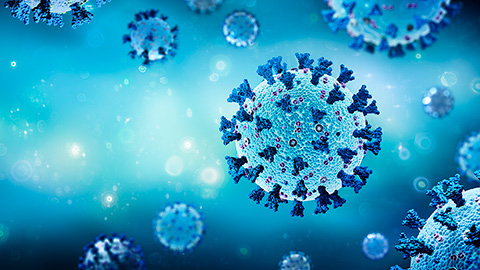
Early COVID-19 research is riddled with poor methods and low-quality results
The pandemic worsened, but didn’t create, this problem for science.

So, you went to a conference. Now what?
Once you return to normal lab life, how can you make use of everything you learned?
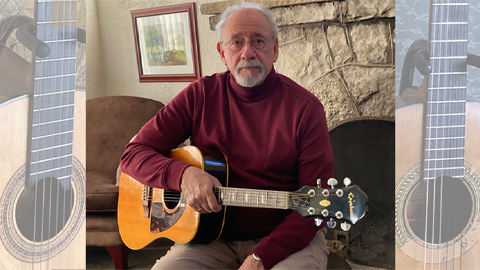
My guitar companion
A scientist takes a musical journey through time and around the world.
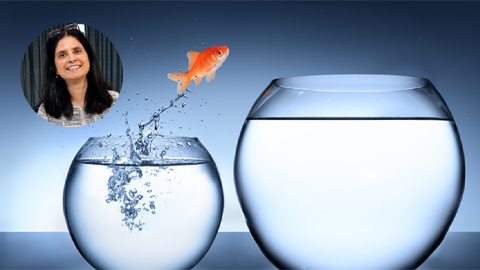
Catalyzing change and redefining purpose
To mark Women’s History Month, Sudha Sharma writes about her journey from focusing on her own research program to being part of a collaborative COVID-19 project.
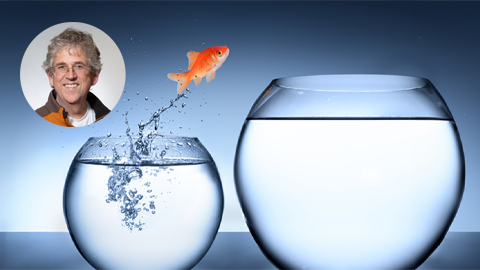
The power of sabbaticals
To mark Women’s History Month, Nicholas Rhind writes about learning techniques in other researchers’ labs that empower the work in his own.
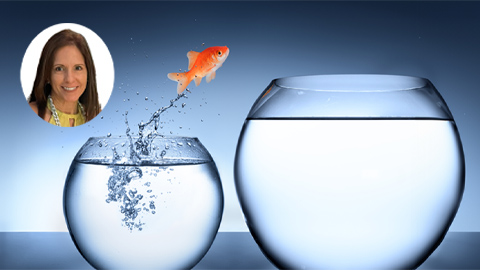
Pursuing the call to change
To mark Women’s History Month, Karlett Parra writes about her journey from wanting to be a researcher to becoming a department chair.

